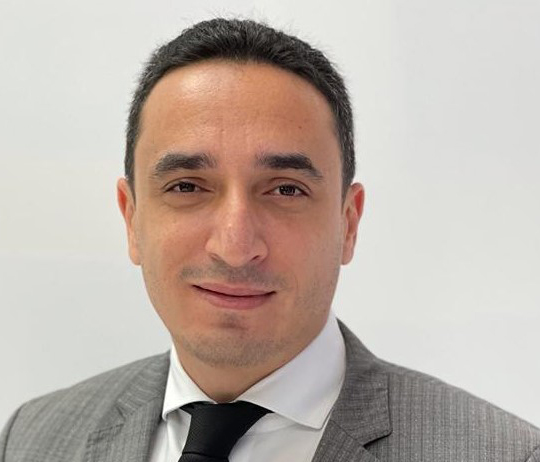As Smart Cities emerge across the globe, there is a ‘huge opportunity’ in Africa to embrace and evolve towards this concept. This is the view of Mahmoud El-Banna, Head of Digital Industries Sales for China, India and MEA at Nokia. He talks us through some of the existing and new initiatives in the region, as well as how Nokia is at the forefront of such projects across the globe, including Africa.

The African continent is poised to leapfrog other continents when it comes to the adoption of Smart City technologies. The Smart City industry is expected to grow exponentially over the next couple of years, with International Data Corporation expecting spending on Smart Cities in the Middle East and Africa region to cross the US$4.4 billion mark in 2025.
For years a lack of infrastructure has been cited as one of the continent’s biggest drawbacks. The lack of infrastructure, however, means that countries in Africa can implement smart technologies without incurring the cost of maintaining legacy infrastructure, paving the way for the emergence of Smart Cities at a rapid rate.
According to Mahmoud El-Banna, Head of Digital Industries Sales for China, India and MEA at Nokia, there is a huge opportunity in Africa to evolve towards the Smart City concept.
“Smart Cities are focused on three important pillars for country and community – smartness, safety and sustainability. The level of emphasis on each of the pillars differs between countries, depending on the needs and focus of that specific country,” he said.
“Smart Cities are developed to address sustainability and safety issues, which represent some of the most fundamental issues faced by the continent today. The enablement of safety specific use cases such as smart surveillance, video analytics, crowd control and central command and control platforms will directly address the safety pillar and provide safer lives for the citizens of African countries.”
As the world continues to focus on preserving natural resources, sustainability becomes a priority.
“Key sustainability use cases such as smart water, smart grids and the digitalisation of key sectors such as mining and oil and gas will become key priorities over the next couple of years as governments in Africa strengthen their commitment to environmental sustainability,” said El-Banna.
Smart Cities emerging as part of Digital Transformation
With most countries in Africa prioritising Digital Transformation, developing Smart Cities is one of the core focus areas in their plans. Already, there are a few national and private initiatives for Smart Cities in Africa at multiple scales and levels and this is expected to grow over the next couple of years.
“The new administrative capital city in Egypt represents a prime example for the establishment of the Smart City model, along with the multiple other Smart City initiatives underway in the country. Apart from Egypt, we see multiple Smart City initiatives in South Africa, Nigeria, Rwanda and Kenya, to name a few,” he said.
Egypt is building a new administrative capital as a megacity to host more than seven million inhabitants.
“The city will host a major governmental district where all the governmental entities will operate from the city in the future. Situated in the far eastern part of Cairo, the city is built according to the latest modern standards of Smart Cities with state-of-the-art use cases providing a unique living experience to the citizens of the city. It also includes a new monorail line that links the city to the city centre in Cairo,” said El-Banna.
Egypt is also establishing a handful of other Smart Cities across the country. New Alamin is a major expansion on the north-western coast of Egypt on the shore of the Mediterranean. The city will host a couple of million inhabitants in the future with full governmental, educational, healthcare and transportation infrastructure. Other initiatives include Galala city, new Mansoura and major renovation in other cities in upper Egypt.
Proper transportation across the country is also critical to Smart City success.
“The ministry of transport in Egypt is currently building two monorail lines that connect the Eastern part including the new capital of Cairo to the West. Egypt is building a high-speed rail line that will connect all the major cities in the country including the new ones. The line will start from Al Ain El Sokhna, passing by the new capital to New Alamin and Marsa Matoruh,” El-Banna said.
“New residential districts offering the latest standards of Smart Cities are also being developed by the private real estate sector in Egypt. There are already multiple examples and showcases in the country and some real estate developers have already announced the establishment of a 5G-based city.”
He added that Smart Cities play a pivotal role in boosting countries’ economies and improving GDP.
“It creates a massive opportunity for foreign and local investors to establish new projects inside the Smart Cities, such as real estate, transportation, manufacturing and energy-related projects. Smart Cities also help in preserving natural resources, contributing to the reducing the wastage of these resources and improves the lifestyles of citizens, which in turn increases productivity.”
Nokia at the forefront of Smart City initiatives
Nokia is at the forefront of Smart City projects across the globe, as well as in the Middle East and Africa.
“We have a strong proposition for Smart Cities through our comprehensive technology stack, which addresses multiple layers within these projects. Nokia provides a unique offering for connectivity networks in Smart Cities based on a combination of wireline fibre broadband access and wireless 4G/5G access which enables a seamless experience to the city operators to enable multiple use cases.
“The use cases range from high-speed residential and enterprise Internet access to a variety of Internet of Things (IoT) use cases and specific safety-related use cases,” said El-Banna.
“Nokia also provides a very powerful offering for IP and optical networks which represents a robust backbone layer for the city traffic. On the application and security control layer, Nokia is focusing on a selective offering to control and manage the IoT layer deployed in the city through the company’s IoT and device management platform, unified IT layer for billing, charging and orchestration purposes, command and control platform to manage and control all city operations and comprehensive cyber security stack with a focus on managing all security aspects of the deployed networks in Smart Cities.”
Click below to share this article

